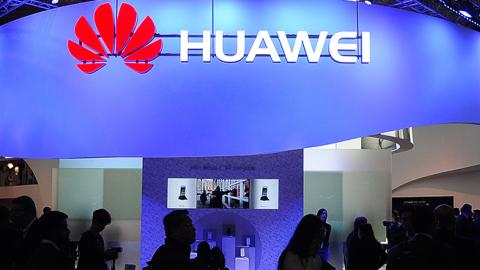Most Americans carry smartphones or iPads with the best current technology called 4G. We watch videos and communicate with friends around the world. While this technology is advanced, its throughput speed is too slow and its reactive speed or latency is too long to guide autonomous vehicles or support virtual reality machines.
The next generation of wireless technology, 5G, will have speeds more than 100 times faster than 4G and latency reduced to a millisecond. Who is in the lead in developing 5G? The answer is Huawei, a Chinese company.
Relatively few Americans have heard of Huawei, and those who have may associate it with national security fears. In 2013, Sprint agreed under pressure from the federal government to remove all Huawei network equipment as a condition of Sprint’s acquisition of Clearwire. The federal government’s concern was not about the technical capabilities of the Huawei equipment, but rather about the security risks associated with having such equipment in American telecommunications infrastructure.
Huawei is one of the largest, if not the largest, manufacturers of electronic equipment in the world. It is the largest seller of smartphones in China, and likely the largest manufacturer of wireless network equipment. While other network equipment manufacturers such as Ericsson and Microsoft/Nokia have been reducing their network equipment profile, Huawei has been expanding and is the clear leader in 5G R&D.
The new 5G networks that will link America in the coming years may not necessarily have equipment manufactured directly by Huawei—although such investments are possible. But 5G network will almost certainly have equipment under license to various essential patents controlled by Huawei.
It is unclear whether Huawei-manufactured or Huawei-licensed equipment will lead to national security concerns, but the case of Huawei illustrates the many problems associated with a national government, in this case China, supporting one company and undermining others. These problems are not unique to Huawei or to China and President Trump should try to address them.
Separate from national security concerns, foreign governments can and do help local businesses at the expense of foreign ones in at least three areas: intellectual property, antitrust law, and foreign investment. This often puts American companies in an unfair position.
Intellectual property
Consider intellectual property. Every year, the U.S. Trade Representative publishes reports on international compliance with intellectual property laws. The most egregious violators of intellectual property are placed on a “Priority Watch List.” In most years in recent decades, China is on that list.
Do the Chinese and other governments on the USTR “Priority Watch List” worry about retaliation from the United States? No. The USTR reports are statutory requirements. A press release and mild finger wag are about the worst America has to offer. Our government would not stand by passively while pirates stole an American oil tanker or a plane full of American-made computers. But when tens or hundreds of billions of dollars worth of intellectual property are stolen with the clear acquiescence of the Chinese or another government, nothing has ever happened.
Rational foreign governments realize nothing likely ever will happen, so they turn a blind eye to continued theft.
Intellectual property theft is particularly common in China, and it receives substantial attention in the popular media. Even the academic journal Science featured an article on Chinese theft of intellectual property Sadly, intellectual property theft has become a spectator sport in America; people watch the carnage for sadistic entertainment value but have no intention of stopping it.
Antitrust laws
America largely invented antitrust laws in the late 19th and early 20th century to protect American consumers from the abuse of market power by large corporations. The analysis was and is consumer-focused.
Other countries have adopted antitrust laws and applied them sometimes with the ulterior motive of harming American businesses. Europe has no major online companies, and the European Commission has aggressively harassed Google and other American online companies with antitrust complaints. But China has used antitrust laws to beggar foreign companies operating in China—such as Microsoft, Qualcomm, Daimler, and Volkswagen—while enriching Chinese competitors in the process. Richard Epstein, the U.S. China Business Council, and the U.S. Chamber of Commerce have all documented the abuses of the Chinese antitrust laws.
Foreign investment
When an international automobile manufacturer considers building a plant in the United States, various states prepare packages of tax incentives, worker training, and other attractions to lure the foreign investors. When American companies invest in China, government officials do not go out of their way to benefit the Americans. Dubious property rights, multiple and inconsistent financial statements, and the quarantining of equipment are just some of the problems a new investor might find in China, practically all courtesy of the Chinese government. Online companies such as Amazon, Google, and Facebook are either blocked in China or asked to share consumer information with the government.
If the rule of law were uniformly weak in a country like China, the solution would be to improve the rule of law. But the rule of law is only selectively weak in China. It works well for companies close to the government. It works less well for other companies. In each of the areas discussed above—intellectual property, antitrust laws, and foreign investment—Huawei has benefitted from the discriminatory policies of the Chinese government.
Consumers around the world, and in America in particular, have benefitted from new wireless technologies. 5G will be no different. New technologies for wireless devices, for online services, and for network equipment have propelled the wireless industry to have the most widely diffused consumer electronic product in the world.
Consumers win when laws are predictably and uniformly applied. Consumers lose when laws are used to help only those businesses close to a government and to punish others. President Trump needs to make sure that American companies and consumers are treated fairly.

















